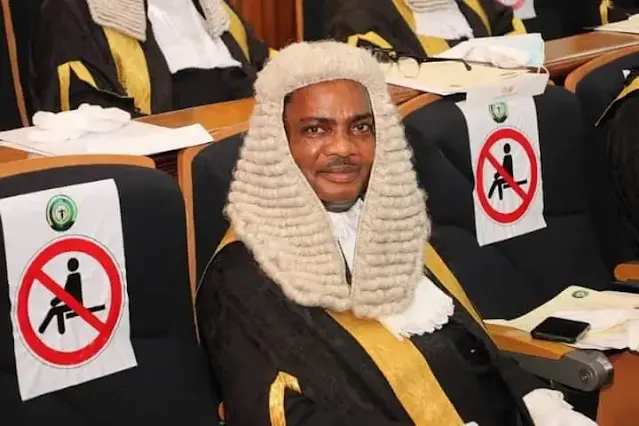A tempest brewed within the political corridors of Rivers State, Nigeria, as the government found itself embroiled in a contentious dispute with its former Attorney-General and Commissioner for Justice, Professor Zaccheus Adangor, SAN. Authored by Dennis Naku, the narrative unfolded against a backdrop of accusations, rebuttals, and a quest for truth that threatened to unsettle the foundations of governance in the region.
The saga began three weeks prior when Professor Adangor tendered his resignation from Governor Siminalayi Fubara's cabinet, citing purported interference with his duties as the Attorney-General. The catalyst for Adangor's resignation was his redeployment to the Ministry of Special Duties within the Governor's Office, a move that he deemed unacceptable and antithetical to the autonomy of his role.
In a scathing letter of resignation, Adangor lambasted Governor Fubara for what he perceived as unwarranted meddling in legal affairs, casting aspersions on the integrity and independence of the legal system. His words reverberated through the political landscape, sparking speculation and scrutiny regarding the inner workings of the state government.
However, the plot thickened when the State Commissioner for Information and Communications, Joseph Johnson, issued a rebuttal to Adangor's allegations, vehemently denying any wrongdoing on the part of Governor Fubara. Johnson expressed incredulity at Adangor's televised statements, branding them as "afterthoughts" and "deliberate falsehoods" designed to sow discord and confusion.
According to Johnson, Adangor's televised remarks contradicted the contents of his resignation letter, wherein he had explicitly cited interference with his work as the primary reason for his departure. The sudden shift in narrative raised suspicions and cast doubt on the veracity of Adangor's claims, prompting swift condemnation from the government and its supporters.
In a blistering critique of Adangor's character, Johnson accused the former Attorney-General of resorting to "cheap blackmail and barefaced falsehood" in a misguided attempt to salvage his reputation. Johnson emphasized Governor Fubara's commitment to upholding the rule of law and respecting the autonomy of government institutions, dismissing Adangor's accusations as baseless and unsubstantiated.
Moreover, Johnson questioned the ethics of Adangor's actions, particularly his use of official letterhead from the Ministry of Justice to tender his resignation. Such a flagrant breach of protocol, Johnson argued, reflected poorly on Adangor's integrity and cast doubt on the sincerity of his motives.
As the war of words escalated, the rift between Adangor and the state government deepened, leaving observers to ponder the implications for governance and accountability in Rivers State. The specter of political intrigue loomed large, overshadowing the progress and stability that the region had fought so hard to achieve.
In the midst of the turmoil, calls for transparency and accountability resonated loudly, as citizens demanded answers and accountability from their elected leaders. The need for clarity and honesty in public discourse became increasingly urgent, as the integrity of the government and its officials came under scrutiny.
At its core, the dispute between Professor Adangor and the Rivers State Government underscored the delicate balance between power and accountability in a democratic society. It served as a sobering reminder of the importance of transparency, integrity, and ethical conduct in public service, and the consequences of betraying the trust placed in government officials.
As the dust settled and the echoes of controversy faded into the background, Rivers State found itself at a crossroads, grappling with the fallout from a bitter dispute that had laid bare the fault lines of governance. In the aftermath of the conflict, the true test of leadership would lie in the ability to heal wounds, rebuild trust, and chart a path forward towards a brighter and more inclusive future for all.





.jpeg)

.png)




0 Comments
Post your comment here